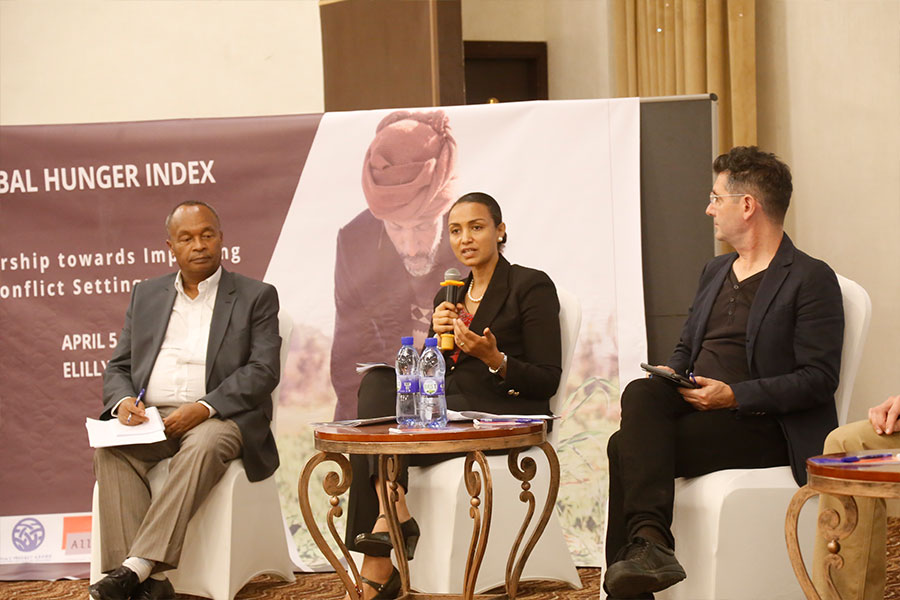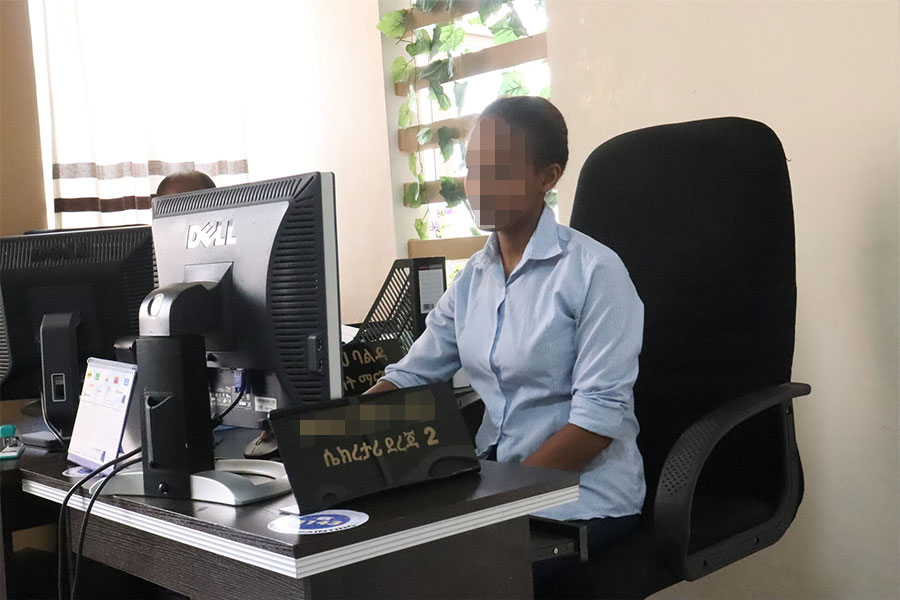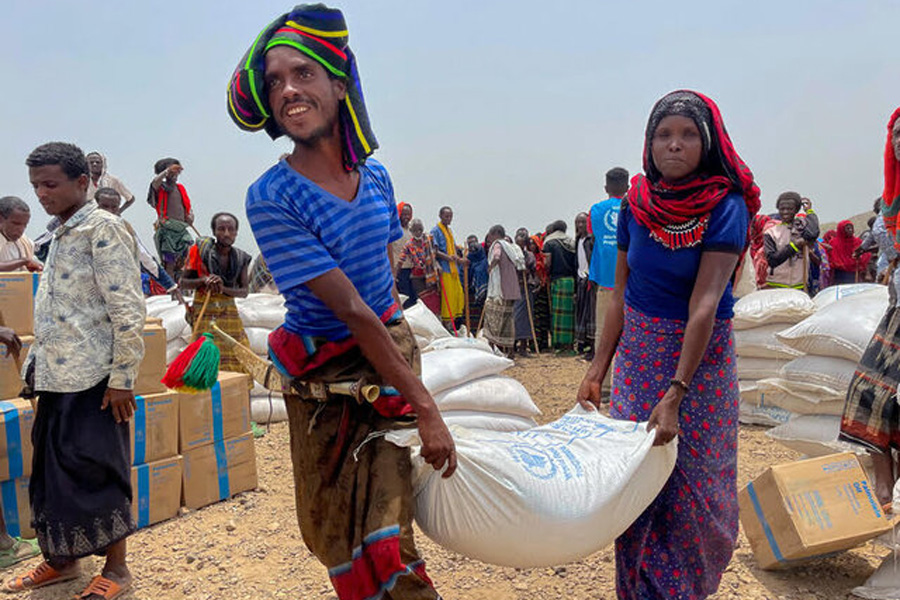
Radar | Jun 12,2023
Aug 5 , 2023
By Jordan Dey
This year marks the halfway point for implementing the Sustainable Development Goals (SDGs), the ambitious set of global targets introduced by the United Nations (UN) in 2015.
These 17 goals, devised to address today's most pressing challenges and put the world on the path to sustainability, seek to reduce poverty, improve access to healthcare and education, and mitigate the worst effects of climate change by 2030. But when it comes to meeting the critical goal of eradicating food insecurity, much of the progress made over the past decade has been undone.
When the SDGs were launched, the target of eliminating food insecurity and malnutrition worldwide within 15 years seemed ambitious but within reach. At the time, hunger levels had been trending lower for over two decades, largely thanks to rising agricultural productivity and global economic growth. Over the past few years, however, the world has been hit by a series of compounding crises, from the COVID-19 pandemic and the ongoing war in Ukraine to extreme weather events caused by climate change. As a result, global hunger has surged, with the world's poorest people suffering the most.
According to a new UN report, approximately 735 million people are experiencing food insecurity, an increase of 122 million people since 2019. Alarmingly, seven countries – Somalia, Afghanistan, Burkina Faso, Haiti, Nigeria, South Sudan, and Yemen – are now on the brink of famine. Not only are we falling short of reaching zero hunger by 2030, but we are worse off than we were in 2015.
Where do we go from here?
To meet the UN's zero-hunger target, we must first recognize who makes up the majority of the world's poor and understand where most of their food comes from. The answer to both questions is surprisingly straightforward. The vast majority of the world's poorest individuals are smallholder farmers who also produce most of the food consumed in many developing countries. These farmers have been hit hard by the shocks of the past few years, in addition to the systemic challenges that have kept them trapped in poverty and food insecurity.
Yet within the current crisis lies an opportunity. By supporting smallholder farms, the international community could make significant strides toward ending global hunger. Governments and international institutions can aid smallholder farmers and eliminate global food insecurity in several ways.
Most smallholder farms in developing countries generate disproportionately low crop yields compared to their developed-country counterparts, largely because they lack basic inputs, such as improved seeds and organic fertilisers. This is particularly evident in sub-Saharan Africa, where yields for staple food crops are significantly lower than global averages. Increasing access to high-quality farm inputs, especially those that help farmers adapt to climate change, could thus greatly enhance food security.
Lack of access to credit prevents most smallholder farmers from purchasing improved agricultural inputs or investing in their farms. Greater global support for programs that provide these farmers with financing would help. Smallholder farmers typically harvest crops once or twice a year. This means that food must be stored for months to ensure that supplies last until the next harvest. Given the limited access to proper storage technology, staple food grains are frequently exposed to damage by insects, mold, and other pests, contributing to post-harvest crop losses and household hunger.
These smallholder farms require greater access to advanced storage options, including low-cost, hermetically sealed bags that can preserve crops for extended periods and eliminate the need to treat stored grains with potentially harmful insecticides.
Finally, smallholder farmers need better access to viable markets for their crops, enabling them to move beyond subsistence and build reliable livelihoods. The international community, alongside public- and private-sector actors, must do more to bolster local capacity and encourage investment in agricultural value chains. This would empower more smallholders to develop sustainable businesses.
Despite the massive challenges ahead, achieving zero hunger remains a feasible target. In September, global leaders attending the UN General Assembly will evaluate progress toward achieving the SDGs. If we are to create a world free from hunger, supporting agriculture and smallholder farmers must be at the top of the agenda.
PUBLISHED ON
Aug 05,2023 [ VOL
24 , NO
1214]


Radar | Jun 12,2023

Fortune News | Nov 11,2023

Commentaries | Apr 04,2020

Viewpoints | Mar 14,2020

Viewpoints | Apr 06,2024

Radar | Apr 09,2022

Commentaries | May 14,2022

View From Arada | Nov 13,2021

Fortune News | Dec 01,2024

Featured | Jan 05,2019

Photo Gallery | 176967 Views | May 06,2019

Photo Gallery | 167183 Views | Apr 26,2019

Photo Gallery | 157761 Views | Oct 06,2021

My Opinion | 136942 Views | Aug 14,2021

Dec 22 , 2024 . By TIZITA SHEWAFERAW
Charged with transforming colossal state-owned enterprises into modern and competitiv...

Aug 18 , 2024 . By AKSAH ITALO
Although predictable Yonas Zerihun's job in the ride-hailing service is not immune to...

Jul 28 , 2024 . By TIZITA SHEWAFERAW
Unhabitual, perhaps too many, Samuel Gebreyohannes, 38, used to occasionally enjoy a couple of beers at breakfast. However, he recently swit...

Jul 13 , 2024 . By AKSAH ITALO
Investors who rely on tractors, trucks, and field vehicles for commuting, transporting commodities, and f...

Oct 18 , 2025
The political establishment, notably the ruling party and its top brass, has become p...

Oct 11 , 2025
Ladislas Farago, a roving Associated Press (AP) correspondent, arrived in Ethiopia in...

Oct 4 , 2025
Eyob Tekalegn (PhD) had been in the Governor's chair for only weeks when, on Septembe...

Sep 27 , 2025
Four years into an experiment with “shock therapy” in education, the national moo...

Oct 18 , 2025 . By NAHOM AYELE
In a sweeping reform that upends nearly a decade of uniform health insurance contribu...

A bill that could transform the nutritional state sits in a limbo, even as the countr...

Oct 18 , 2025 . By SURAFEL MULUGETA
A long-planned directive to curb carbon emissions from fossil-fuel-powered vehicles h...

Oct 18 , 2025 . By BEZAWIT HULUAGER
Transaction advisors working with companies that hold over a quarter of a billion Bir...